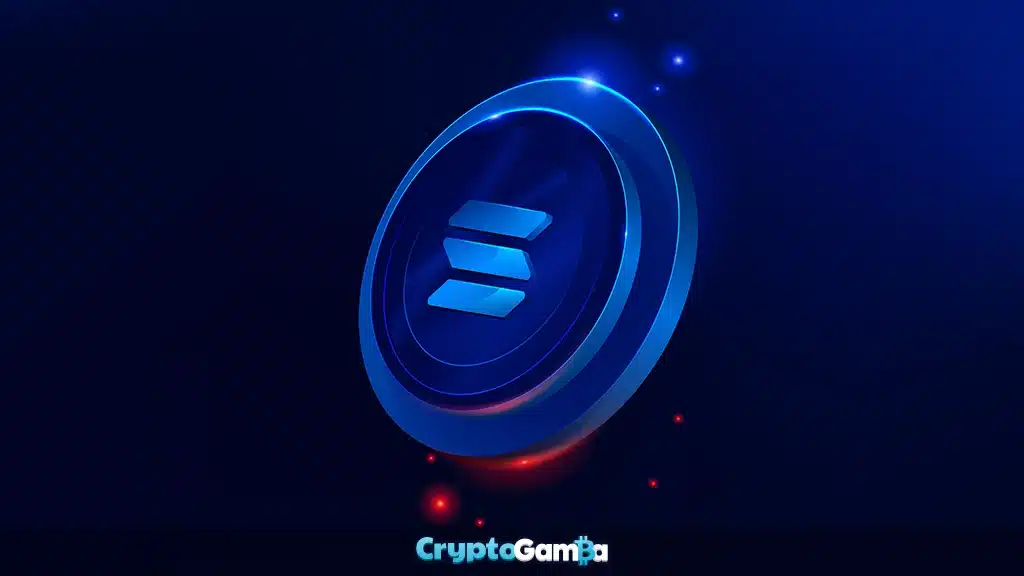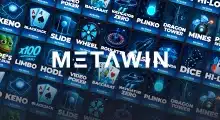Gambling with Solana: Pros and Cons
Whenever crypto casinos are discussed, Bitcoin, Ethereum and Solana are frequently mentioned. Although BTC and ETH are the most common cryptos, Solana has been gaining popularity and traction recently. More and more casino players are interested in seeing what this alternative offers and how it competes with Bitcoin and Ethereum.
In our guide, we discuss using Solana for online gambling and highlight its pros and cons. Crypto Gamba experts have analysed all the aspects, so read our article to discover whether this cryptocurrency meets your needs.
What is Solana?
Solana is one of the most efficient blockchains. Designed to develop and execute DApps, it addresses some of the limitations of other blockchains. The Solana network is known for its high processing speed and low latency, making it excellent for online gambling enthusiasts. It operates on an open platform that all developers can access.
The SOL token is Solana’s native token. It can be used for payments and as a power for executing different transactions or contracts. Additionally, SOL can be used for staking and as collateral in DeFi applications. It is one of the fastest tokens for crypto transactions, and it is found in many high-ranking crypto casino sites today.
Are you considering signing up with a Solana crypto casino? Before you do, make sure to review the highlights and drawbacks.
Pros of Using Solana
Solana wouldn’t be as popular and widespread if it didn’t bring some serious benefits. Below, we highlighted the most notable ones:
-
Fast Transactions
The Solana network can handle thousands of transactions per second. With a testing maximum of 65,000 TPS and a real-world speed of 5,000 TPS, it is one of the fastest casino payment methods. Comparatively, its biggest competitor, Bitcoin, processes around 7 transactions per second, and Ethereum processes between 15 and 30 transactions per second.
In addition, all crypto casino deposits and withdrawals in SOL are processed immediately. Solana's block time is under 1 second, whereas Ethereum’s is 12 seconds. At the same time, the Bitcoin network has a 10-minute block time.
This means that casino players will have an obstacle-free experience and instant payments. Even on bank holidays or weekends, payments and withdrawals should be completed without delay. Simply put, Solana’s speed makes it a better option than traditional banking methods or ETH and BTC.
-
Low Fees
The second but equally important aspect of Solana is its cost-efficiency. Compared to BTC or ETH, SOL offers considerably lower transaction fees. In 2024, the average fee for a SOL transaction was $0.005. Ethereum's average fee was $20, while Bitcoin transactions could cost between $5 and $6. This difference is far from negligible, as it means that budget-conscious and small-deposit players will get the most for their money with SOL.
-
Global Access
Solana is a global decentralised network that allows players to send and receive SOL from anywhere in the world any time. Its borderless nature allows players to access and play in international crypto casinos, which benefits not only players looking for a greater variety of casinos but also frequent travellers.
-
Exclusive Promotions
Many Solana casinos offer bonuses, including free spins, cashback, reload bonuses and high-roller perks. For example, Stake.com offers a 200% up to $1,000 welcome bonus suitable for SOL deposits. Some sites even run promotions specifically for Solana deposits.
-
Privacy
Privacy is closely associated with crypto casinos. Solana's blockchain is public, but the transactions are pseudonymous and linked to cryptographic addresses unrelated to the holder's identity. Moreover, crypto casinos, especially decentralised apps, do not require KYC verification. These no KYC casinos are perfect for players who want to maintain complete anonymity in their online gambling activities, especially in an era of such invasions of privacy.
Cons of Using Solana
Although SOL is one of the best crypto tokens on the gambling market, it does come with some downsides.
-
Accessibility
Compared to BTC or ETH, SOL is less represented at online casinos. Some sites that support it are Stake Casino and BC.Game Casino, but other popular casinos have yet to include it. Therefore, players who only use SOL might not have many options to choose from.
-
Volatility
One of Solana's most significant downsides is its price volatility. SOL, like many cryptos, is highly volatile. In 2021, the price increased by more than 11,000%, then dropped by 94% in 2022. In 2023, the price rebounded 10 times. These fluctuations mean that the value of your funds can change, and you can end up losing money even if you win while playing crypto casino games.
-
Network Congestion
Although it has a higher TPS, Solana still has a history of network congestion and outages, which are disruptive for online casino players. In 2021, the network went down for 17 hours after a high number of transactions. In February 2023, it also suffered a 19-hour outage. Outages mean transactions aren't being processed, preventing players from depositing and cashing out.
-
Security Risks
The core of the blockchain has never been compromised. However, some Solana-based platforms have been exploited. In February 2022, the Wormhole Bridge was hacked, resulting in the loss of $320 million worth of crypto. The Solana-based Mango Market was also exploited for $100 million. Although these are not online casinos, the security risks remain. Moreover, Solana has some typical crypto risks and requires additional caution.
Conclusion
Solana is one of the pillars of the fast evolution of online gambling and, undoubtedly, one of the leading cryptos today. However, like any other crypto, it carries many risks.
We believe this is an excellent crypto for gamblers who prefer fast transaction turnarounds at minimal costs. For gamblers who engage in long-term strategic gambling, the high volatility of SOL might make it an illogical choice.





